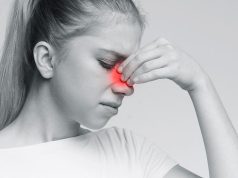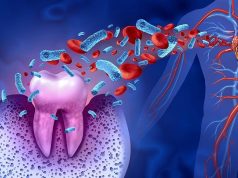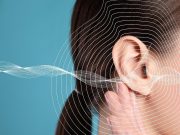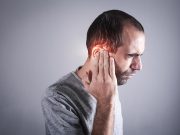Signatures of Disrupted Affective Sound Processing Identified in Tinnitus
Objective measures of pupil dilation and facial movement elicited by emotionally evocative sounds accurately predict scores from subjective self-report questionnaires
32 Percent of Dementia Attributed to Audiometric Hearing Loss
No association seen for self-reported hearing loss with increased risk for dementia in community-dwelling seniors during up to eight years of follow-up
Nearly Half of Americans Breathe Unhealthy Air, New Report Finds
Poor Hearing Associated With Increased Risk for Incident Heart Failure
16.9 percent of the association was mediated by psychological distress; 3.0 and 3.1 percent mediated by social isolation, neuroticism
Incidence of RT-Induced Otitis Media With Effusion Examined in Head and Neck Cancer
Incidence of RTOME is 5.83 percent in patients with head and neck cancer, with significant variation seen by cancer type
Public Lacks Knowledge About Dysphagia
Gap in public awareness is larger than for other conditions, even though prevalence of dysphagia is higher than vertigo
At-Home Smell Test Can Help ID Risk for Cognitive Impairment
Odor memory, identification, and discrimination scores decreased with age and were lower in MCI group
Specific Dietary Elements Linked to Reduced Incidence of Tinnitus
Fruit intake, dietary fiber, caffeine, and dairy product consumption negatively correlated with tinnitus incidence
Sugar-Sweetened Beverage Intake Increases Oral Cavity Cancer Risk in Women
Association with oral cavity cancer stronger when restricted to nonsmokers or light smokers and nondrinkers and light drinkers
Adenotonsillectomy Tied to Lower Health Care Use in Pediatric Sleep Disordered Breathing
Fewer office visits and outpatient procedures were the primary drivers of the difference in health care encounters



















